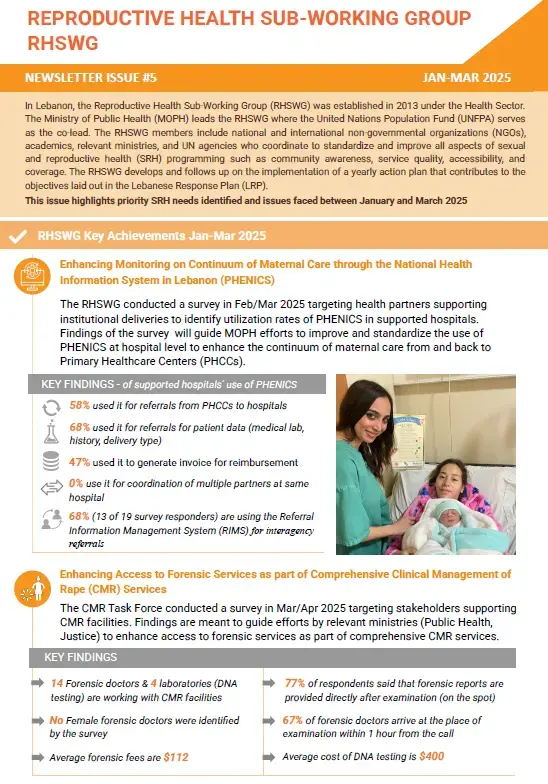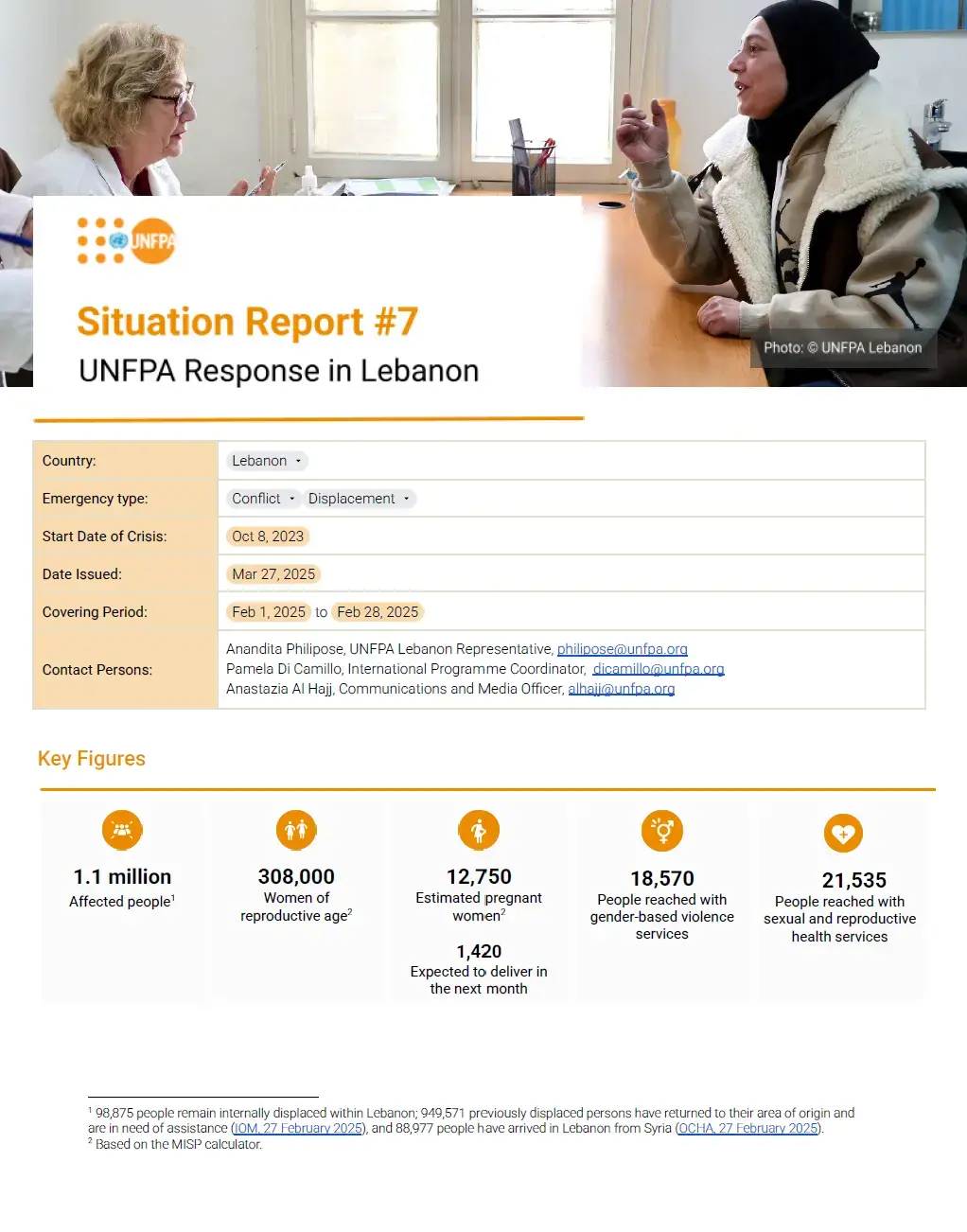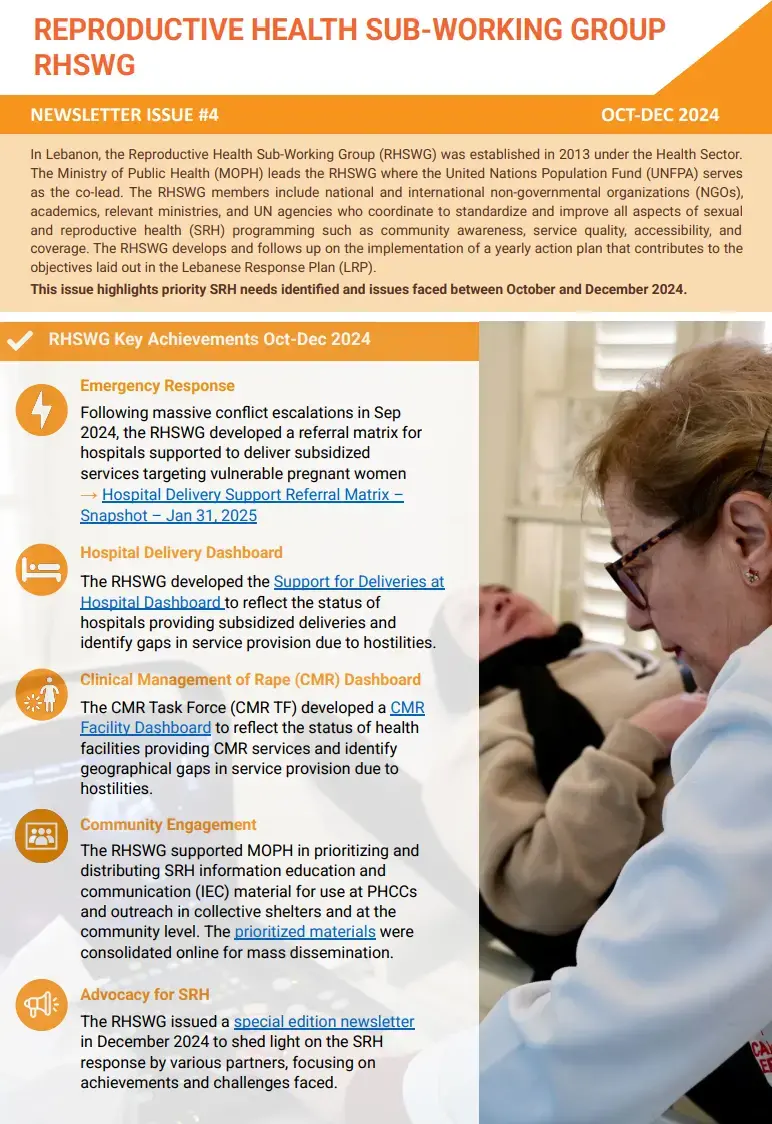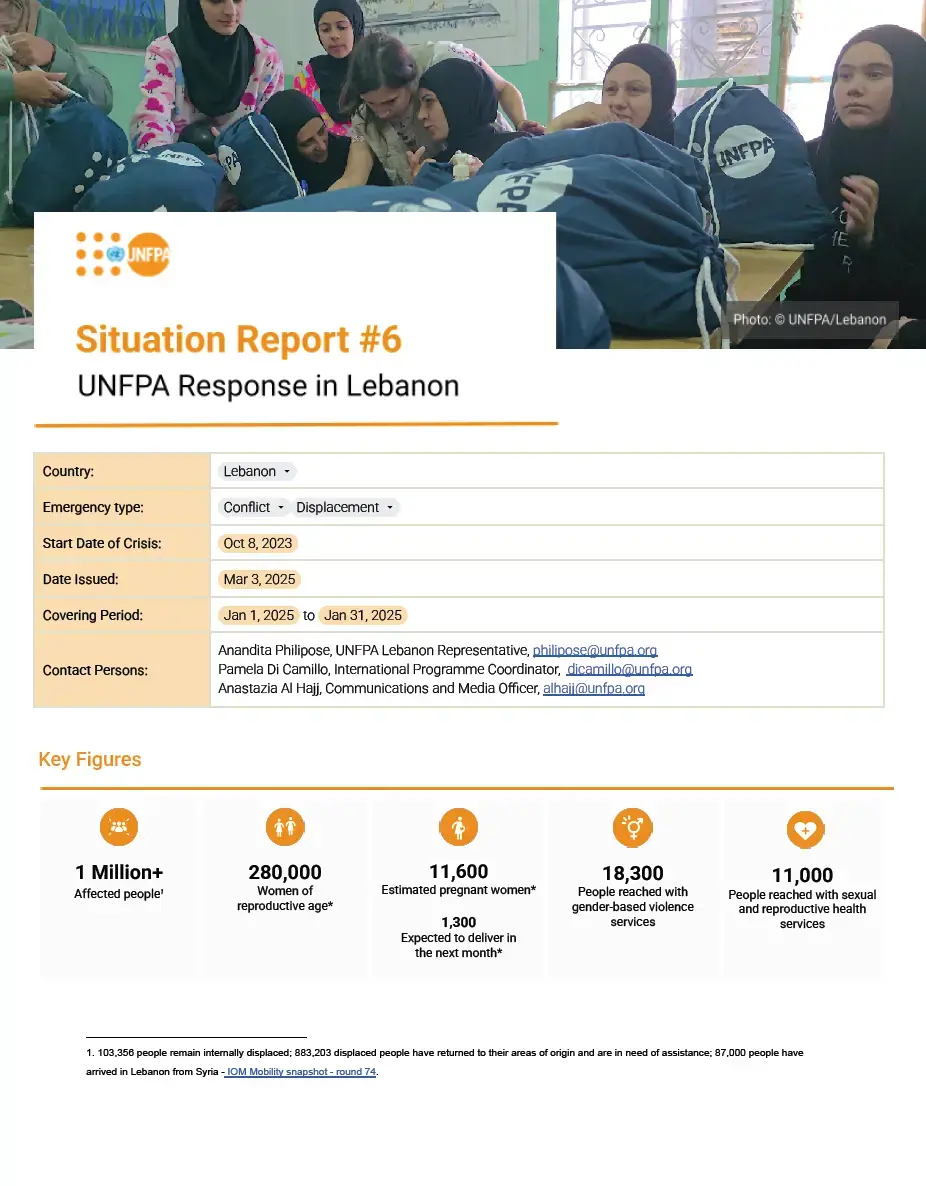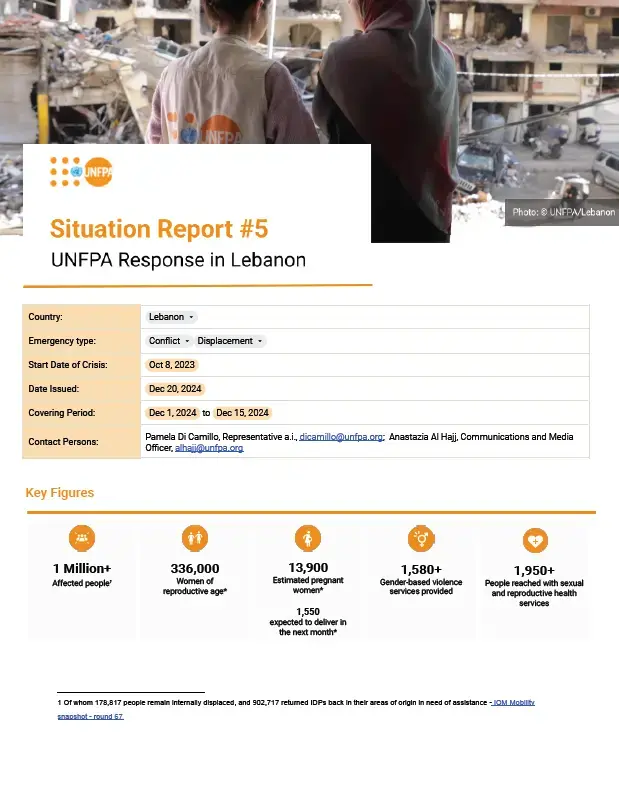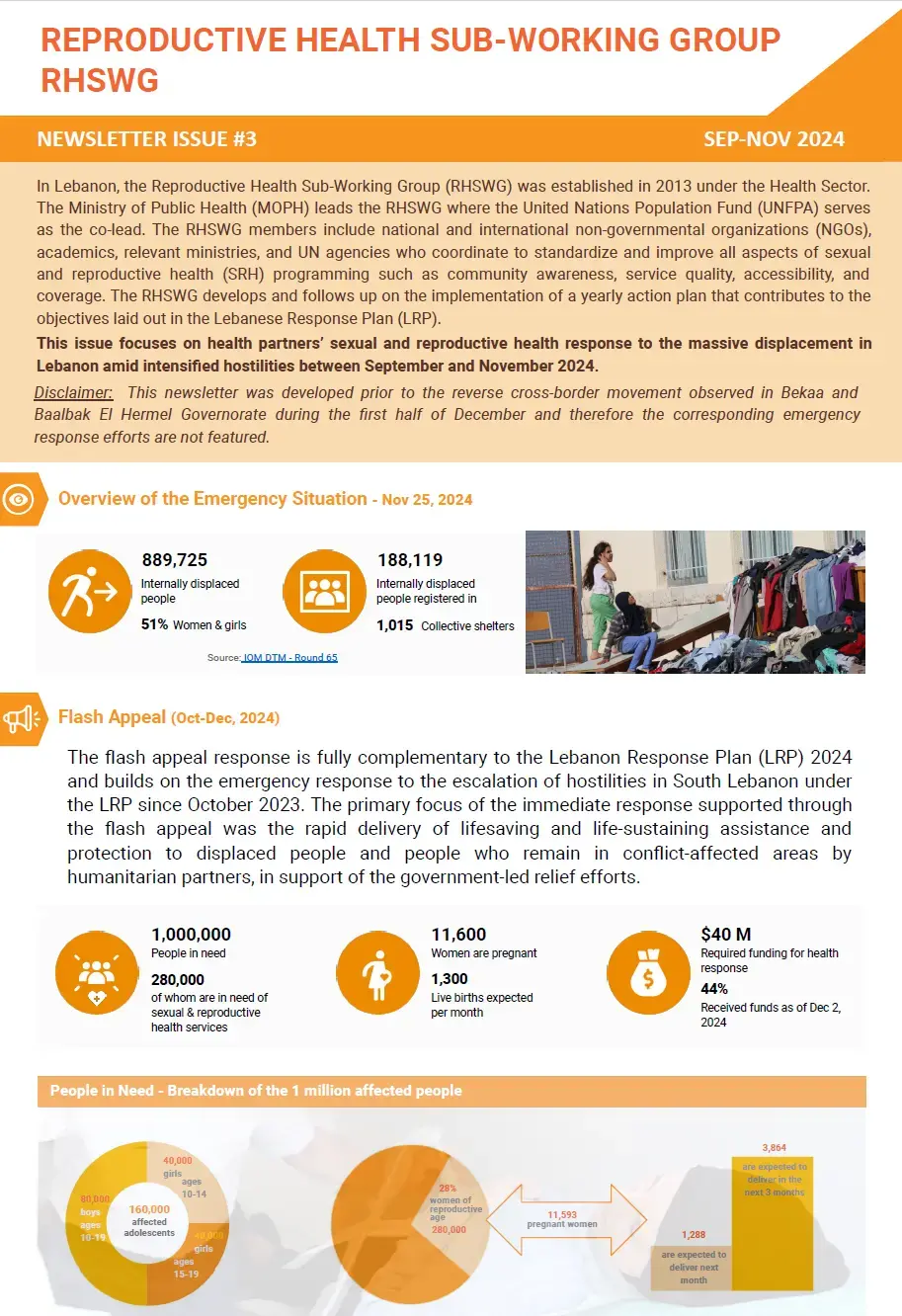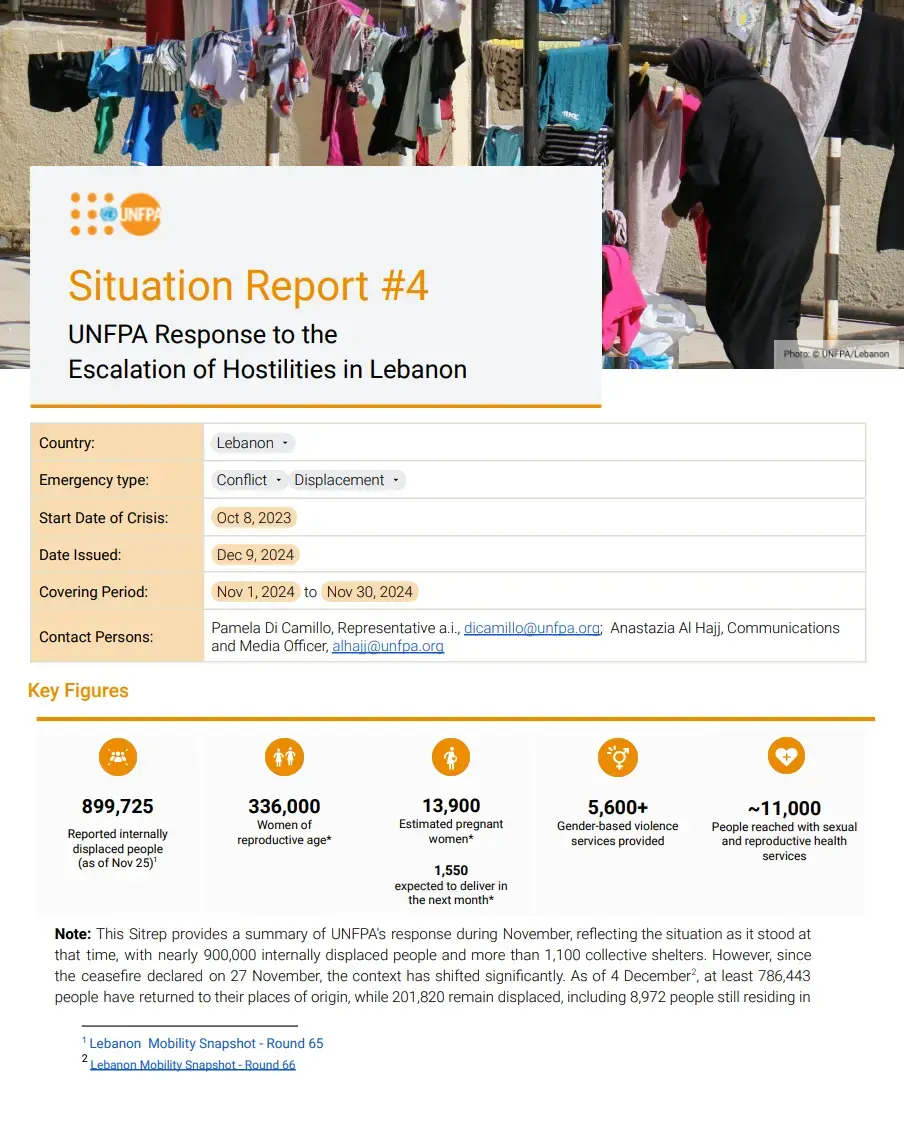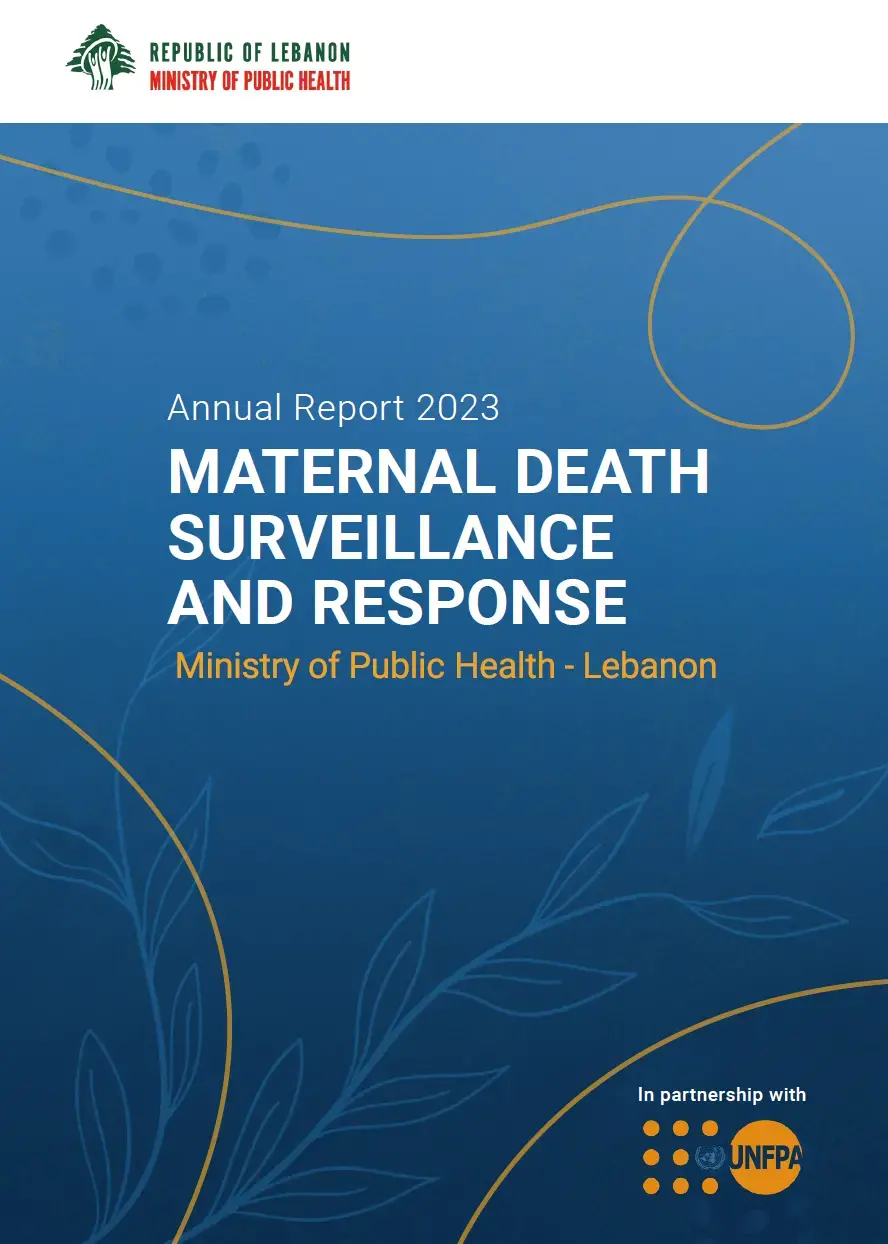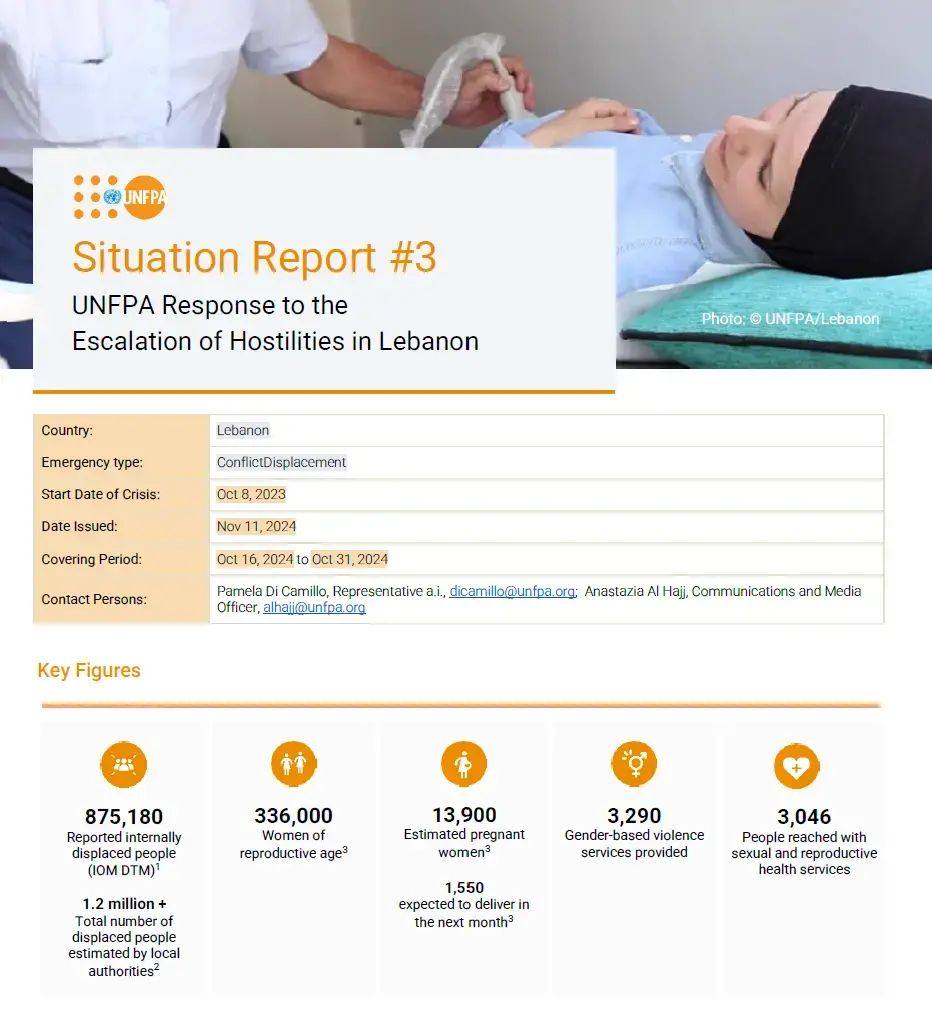Publications
Publications
Newsletter
The Reproductive Health Sub-Working Group (RHSWG) Newsletter - Issue #5
In Lebanon, the Reproductive Health Sub-Working Group (RHSWG) was established in 2013 under the Health Sector. The Ministry of Public Health (MOPH) leads the RHSWG where the United...
Read more
Publication
Situation Report #7 _Feb 2025
This UNFPA situation report #7 describes the humanitarian situation in Lebanon as of February 2025.
Read more
Publication
The Reproductive Health Sub-Working Group (RHSWG) Newsletter - Issue #4
This is the fourth edition of the quarterly Reproductive Health Sub-Working Group (RHSWG) newsletter. In Lebanon, the RHSWG was established in 2013 under the Health Sector. The ...
Read more
Publication
Situation Report #6_Jan 2025
This UNFPA situation report #6 describes the humanitarian situation in Lebanon as of January 2025, amidst ongoing conflict and displacement. Key challenges include continued violat...
Read more
Publication
Situation Report #5 - UNFPA Response in Lebanon (1-15 Dec, 2024)
This situation report reflects the context and UNFPA's response in Lebanon between 1-15 December 2024 following a 60-day ceasefire announcement and a large-scale return movement.
Read more
Publication
The Reproductive Health Sub-Working Group (RHSWG) Newsletter - Issue #3 (Sep-Nov 2024)
The Reproductive Health Sub-Working Group (RHSWG) Newsletter issue #3 focuses on health partners’ sexual and reproductive health response to the massive displacement in Lebanon ami...
Read more
Publication
Lebanon Situation Report #4 - November 2024
This situation report reflects the context in Lebanon and UNFPA's response in November 2024 (Nov 1-30, 2024).
Read more
Annual Report
Maternal Death Surveillance and Response - Annual Report 2023
This report builds on previous annual reports on maternal mortality and aims to document and analyze maternal mortality for 2023, and to provide a descriptive analysis by looking ...
Read more
Publication
Situation Report #3 - UNFPA Response to the Escalation of Hostilities in Lebanon
Since October 2023, escalating hostilities across Lebanon have resulted in over 3,100 deaths and more than 13,800 people have been injured. Of the people in need, an estimated 13,9...
Read more

